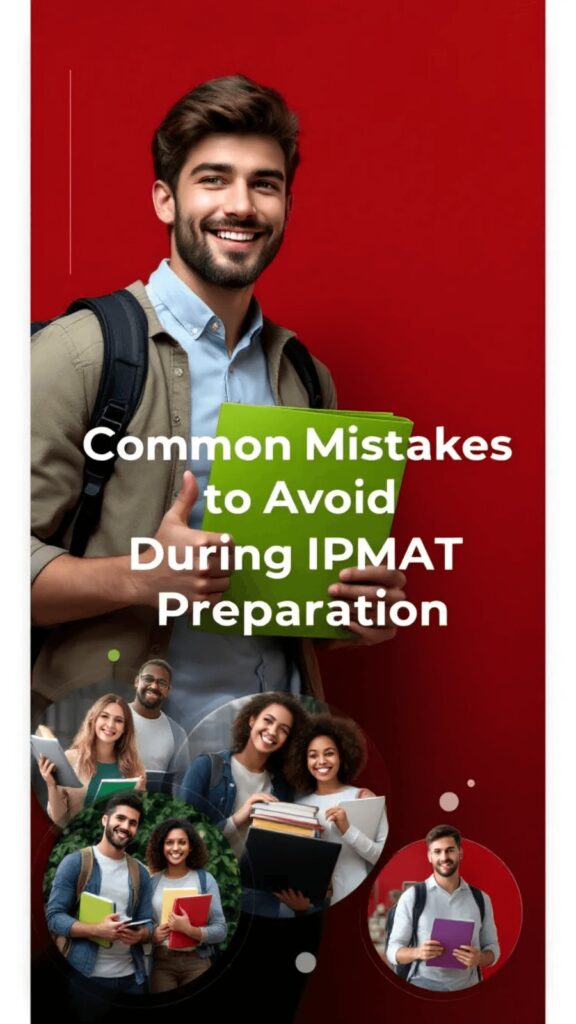Common Mistakes to Avoid During IPMAT Preparation Common Mistakes to Avoid During IPMAT Preparation

Preparing for the Integrated Program in Management Aptitude Test (IPMAT) can be an overwhelming journey for many aspirants. With the right strategy and a well-structured approach, success is achievable. However, it’s easy to make mistakes that can derail even the most dedicated efforts.
You can increase your chances of succeeding and obtaining the outcomes you desire if you are aware of these errors and take precautions to prevent them. The most common mistakes to avoid when preparing for IPMAT 2024 will be highlighted in this article. It will provide you with helpful advice on how to properly prepare for the test.

When preparing for the IPMAT (Integrated Program in Management Aptitude Test), many aspirants make common mistakes that can hinder their chances of success. Here are some pitfalls to avoid during IPMAT preparation:
In preparing for the IPMAT, avoiding common mistakes can make a significant difference in your overall performance. From managing time effectively and balancing your focus across sections to utilizing coaching wisely and focusing on self-study, each strategy has its benefits and challenges. While coaching offers expert guidance, it may lead to over-dependence if not complemented by self-study, which fosters deeper understanding but requires discipline.
Set clear goals, create a study space, break topics into chunks, and use varied resources for learning.
Familiarize yourself with question types and time limits, prioritize easier questions, and practice time management during mock tests.
Set realistic goals, celebrate small wins, and seek support from peers to maintain motivation.
Seek help through online resources, coaching, or study groups, and maintain a positive attitude toward challenging subjects.
@Copyright 2023 Teachwell all rights reserved